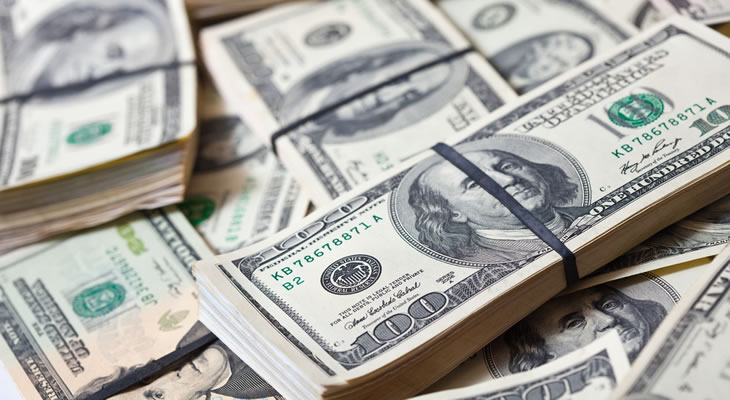Pound US Dollar (GBP/USD) Exchange Rate Drops as UK Economy Contracts
The Pound US Dollar (GBP/USD) exchange rate is sliding lower after having fallen to a two-year low earlier today. An above-forecast drop to the UK’s March GDP figures likely prompted the fall amid a gloomy outlook for the country’s economy. Fears over the UK’s aggressive stance toward the Northern Ireland Protocol may also have contributed to the currency pair’s dip.
At time of writing the GBP/USD exchange rate is at around $1.2206, which is down around -0.2% from this morning’s opening figures.
Pound (GBP) Mixed as UK Threatens to Suspend NI Protocol
The Pound (GBP) is benefitting from a risk-off market mood today that has enabled it to make headway against many of its rivals. Sterling has still struggled against the US Dollar (USD) today after an above-forecast drop to GDP.
The UK’s economy contracted in March amid the country’s cost-of-living crisis. Consumers were found to have reduced spending on big-ticket purchases, as well as spending less on fuel as petrol prices have soared.
The contraction has increased pressure on the UK government to act to prevent the country falling into an early recession.
Threats from UK ministers over the Northern Ireland Protocol may also be weighing on the GBP today. Earlier today, UK Foreign Secretary Liz Truss seemed to threaten that the UK government was prepared to unilaterally suspend the agreement. Maros Sefcovic, the EU’s chief negotiator, said that such a move was ‘simply not acceptable’.
US Dollar (USD) Climbs as Fed Signals Further Rate Hikes
The US Dollar (USD) is still sitting near multiple-year highs against many of its rivals today. A risk-off market mood is seeing investors flock to the safe-haven ‘Greenback’. The currency is now climbing against the Pound (GBP) after having hit two-year peaks earlier in the day.
Expectations that the Federal Reserve will continue to aggressively hike interest rates are helping to bolster the US Dollar. Multiple Fed policymakers have reiterated the need for the central bank to maintain a steady pace of rate hikes.
The comments come after the Fed raised interest rates by 0.5% last week, its largest hike since 2000. Above-forecast jobless claims figures today may have also increased expectations of further rate hikes. An increase to the US producer price index may have also contributed to this sentiment.


Comments are closed.